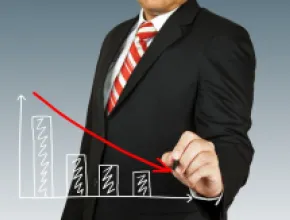Five years after a U.S. Travel Association task force detailed how to rebuild America's aviation security system, the group has come forward with new findings in hopes to evolve the Transportation Security Administration (TSA) to meet the demands of a constantly shifting global security landscape.
In a new report, "Transforming Security at Airports: An Update on Progress and a Plan for the Future of Aviation Security," U.S. Travel experts outline several concrete recommendations for improvement.
"The American economy and way of life depend greatly upon a well-functioning TSA, and we cannot afford to wait until the next crisis to take a hard look at the agency's operations," said U.S. Travel Association and President Roger Dow. “We need a set of policies that puts TSA on 'autopilot,' so to speak, so the agency's long-term success is ensured. Our policy blueprint does exactly that."
Here are some of the U.S. Travel report's recommendations:
- Stop spending TSA fees on unrelated programs. The 2013 Murray-Ryan budget deal increased TSA fees on airline tickets from $2.50 to $5.60 per segment, but only about two-thirds of that increased revenue actually goes back to the TSA. Last year, over $1.25 billion in TSA fees were diverted away from the agency to unrelated projects. Rather than require U.S. travelers to pay billions more in fees for the exact same service, Congress must reverse this fee diversion and allow TSA fees to fully fund TSA security improvements.
- Improve and Expand TSA PreCheck. Currently, TSA PreCheck enrollment costs $85 for five years, making it a fairly cost-effective option for an individual—but prohibitive for a family with children, or many companies that would like to cover enrollment for employees. Introducing a "bulk rate" for TSA PreCheck enrollment could spur serious expansion of the program.
- End repetitive security checks for flyers that have already been screened. Requiring international travelers in transit through a U.S. airport to reclaim, manage, and recheck their bags during a flight connection expends an enormous amount of TSA resources and causes unnecessary travel hassles. U.S. Travel recommends that TSA negotiate an agreement with the European Union based on the U.S.-Canadian "Beyond the Border" Initiative, which would eliminate re-screening if those nations utilize TSA-approved explosive detection equipment.
- Make TSA Administrator a nonpartisan appointment. TSA's duties are not political, and therefore the TSA Administrator should not change with each presidential administration. TSA rules provide for a five-year term for its Administrator, a position currently held by Vice Admiral Peter Neffenger, but they do not indicate whether that person is expected to step down when a new president arrives. Providing continuity of leadership by making the TSA Administrator a five-year nonpartisan position would make TSA operations consistently smoother.
- Get to 100 percent perimeter security checks at commercial airports. GAO has recommended this since 2009, but TSA and the FBI have only conducted perimeter security checks at about 19 percent of commercial airports in the U.S., which is unacceptable. Passengers are not the only sources of risk in air travel; security experts have become increasingly worried about insider and perimeter threats. TSA should develop and implement a system-wide method for assessing the vulnerability of pre-security checkpoint areas in airports.
- Utilize software to more effectively deploy TSA staff. One of the main causes of the early-summer meltdown at TSA checkpoints was an inability to manage TSA staffing according to peak travel times. TSA should be using world-class, readily available management resources that would help assess staffing needs and swiftly determine where to send officers.
"Research shows that when TSA struggles to keep up with travel demand, people simply travel less—and that has alarming implications for the one in nine American jobs travel supports,” Dow said. We urge the new administration and Congress to renew focus on refining and enhancing the operations of the TSA.”
The full report from U.S. Travel has been made available in PDF form.





